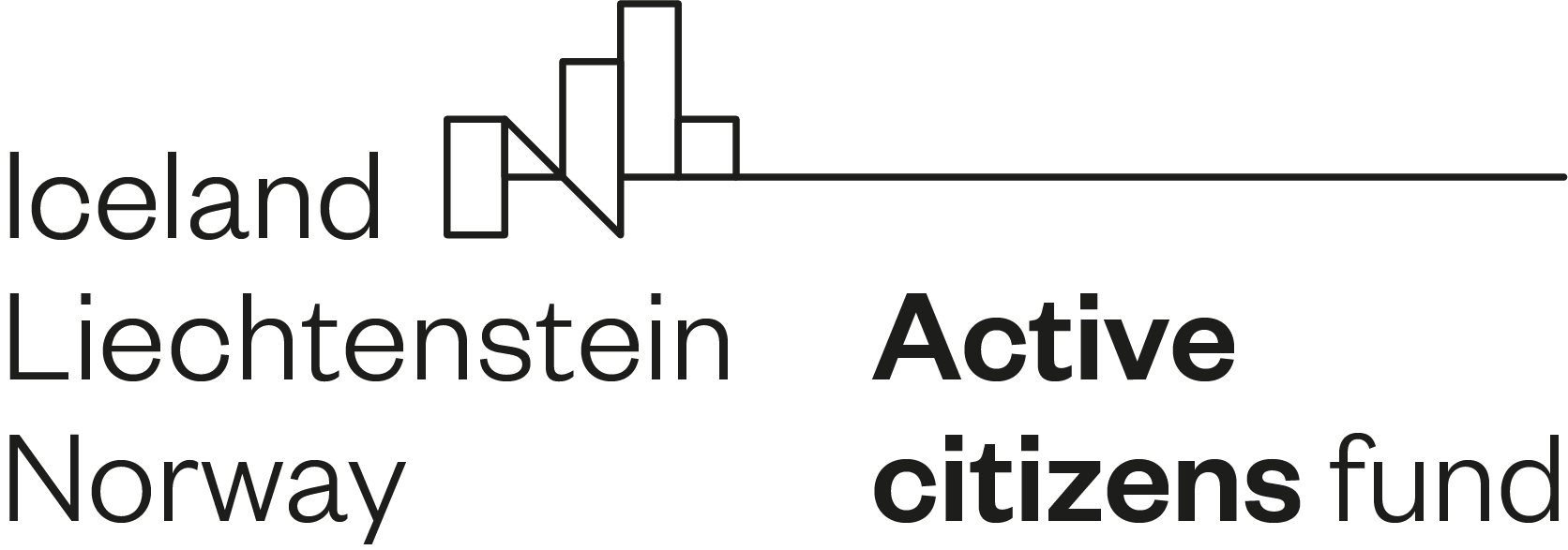Civil society professionals from Hungary are currently doing internships in Norway and Iceland with the support of the EEA Grants. The aim of the internship is to support Hungarian NGO professionals to visit and learn from the practical experience of working with an NGO in the donor states. “The internship in Norway given me a good overview of the Norwegian psychiatric system and new inspiration and ideas which I plan to implement in Hungary upon my return,” says Zsofia Hetesi.
Zsofia Hetesi from Hungary works normally as a social worker at the TÁMASZ Foundation Pécs. The foundation is responsible for the provision of homeless people in Pécs. Here, she saw that there was an increasing number of homeless persons with mental health problems who also did not have the right access to the health care services in Hungary. She therefore started planning a project in which the main aim was to create psychiatric services for homeless patients and to motivate the development and extension of welfare and social services for psychiatric patients. To get new inspiration and knowledge she felt that it would be beneficial to get to know better a prominent psychiatric institution and to learn more about their methods.
Finding the right partner
With funding from the EEA Grants Zsofia was able to apply for a 4-month long traineeship in Norway. “However, it was a long and difficult process to find the right partner organisation,” she explains. The main challenge was to find an organisation which could answer the purpose of the project and complied with the requirements of the call for proposal. In her search for a partner, she read a study about the Norwegian psychiatric system in which the community mental health centers (DPS) were mentioned as one of the most important part of this system. So she searched these institutions on the Internet and found Jæren Distriktspsykiatriske Senter (DPS). She read about the departments and services of Jæren DPS and it aroused her interest. It took some time before she got an answer because of communication issues, but after a couple of weeks she got in touch with the chief doctor at the centre and they agreed to host her.

Jæren Distriktspsykiatriske Senter (DPS)
Innovative services and volunteering
The main aims of her traineeship was to get to know the departments and services of Jæren DPS and to visit other organizations which are engaged in psychiatry, advocacy and voluntary work such as Kirkens Bymisjon (Church City Mission), Kirkens Sosialtjeneste (The Social service of the Church), Mental Helse (Mental Health) and Frivillighetssentraler (Volunteer Centres). She has a coordinator who helps her organise visits and to cooperate with the various departments at Jæren DPS. Slowly, she is getting acquainted with the departments and gaining a comprehensive view of the services. At the different units she is getting familiar with the different patient treatments. Every week, she takes part in the social workers’ meeting to discuss the Norwegian psychiatric system. Every month, she visits the psychiatric department of the local municipality so she has gotten a good overview of their psychiatric services and with the cooperation between Jæren DPS and Klepp municipality.
The most interesting experience so far has been to see the role of the physical activities in the therapy. The centre organises plenty of physical activity groups, trips and other activities for the patients, also in cooperation with the municipality. Zsofia has also attended a training course for the resource persons responsible for a certain type of physical training program. She hopes to start a similar program in Hungary and to become the first resource person of this kind in her home country.
Zsofia has also gained outstanding experience in voluntary work and she has observed how many people volunteer at the aforementioned organisations. Besides the importance of being volunteer, voluntary work plays a decisive role in sustainability. The role of advocacy groups, user committees and user consultants has also been an important experience for her. The users have a significant influence on the development of psychiatric services. For instance, two user consultants are employed by Jæren DPS. They have personal experiences with mental illnesses, so they can convey these experiences in such a way that it would be beneficial both for users and professionals.
Zsofia has already learnt a lot during her internship, but it has also been useful for the partner organisation to host an intern. It allows professionals from other countries to see their institution and their way of working. Getting knowledge of how to work with mental health in other economic, social and cultural circumstances expands their perspective as well. They also get to reflect on their own work and get feedback from the intern when they discuss their work and practices.
The main challenge has been the language. The working language at the centre is Norwegian, so the last 3 months has been an intensive Norwegian language course for Zsofia. However, she has put a lot of effort in it as she finds it crucial to understand Norwegian in order to talk with the patients, understand the methodological processes, read literature about the methods and attend seminars, meetings, or conferences.

Zsofia recently gave a presentation on her internship experiences at Jæren DPS and the differences between Norwegian and Hungarian psychiatry to her colleagues.
Local implementation and continued contacts
“The EEA Grants provided the perfect opportunity to learn about Norwegian psychiatric system and treatment, rehabilitation and recovery of seriously ill psychiatric patients and to get acquainted with methods and good practices which can be adapted to Hungary. I have already begun to draw up an experimental pilot program with the knowledge and experience and I hope we can implement this model program next year in Hungary,” Zsofia explains.
The main challenge when returning to Hungary will be the local adaptation and implementation. Although the Hungarian psychiatric system is currently changing, similar changes were realised 20 years ago in Norway. “We have still huge psychiatric institutions in Hungary. The community based services are developing in these days. The social acceptance of psychiatric disorders in Hungary differs from the social attitude to mental health problems in Norway. So we have to figure out which experiences, methods and practices can be adopted to the current psychiatric system in Hungary. Besides this, we have to find those organisations that are motivated to cooperate with us in this project as well as the funding to realise the project plans,” she explains.
She intends to continue communicating with her Norwegian colleagues after the internship. The staff at the center are positive to stay in touch with Zsofia via email for further support and information. She also wants plan a new visit to the centre in the future. “If we succeed in starting physical rehabilitation projects in my country, my Norwegian colleagues are willing to support this, for instance by coaching or participating in a conference in Hungary,” she says enthusiastically.

The beaces ofJæren at the Western coast of Norway
